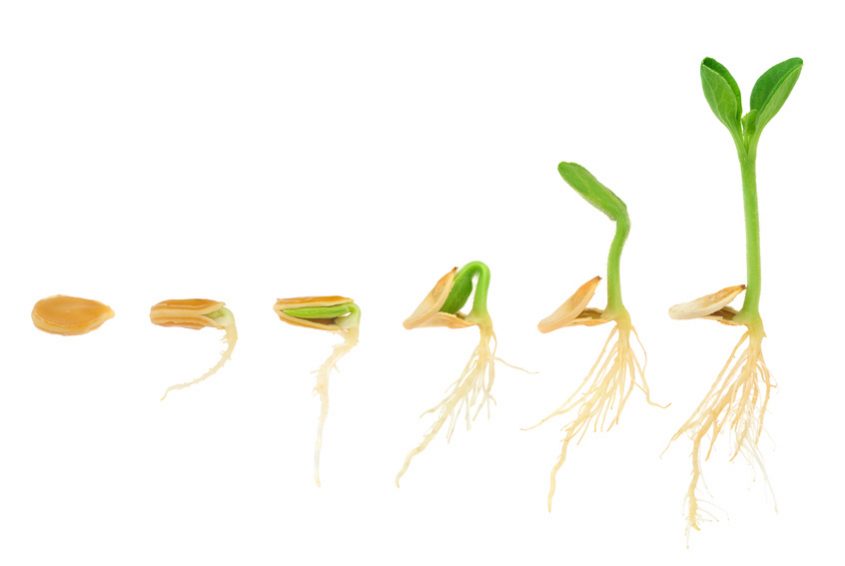Evolution and Innovation in the Food Sector
Last Updated on February 24, 2023
Recently, I read an interesting article on LinkedIn discussing the future of supermarkets. It suggested a drastic evolution in the way we get food, with supermarkets potentially being replaced by drone-delivery of our groceries! Isn’t it crazy? We have now reached an era where our interaction with the world is mainly digital and one of our most essential needs could be met through the click of a mouse. This article really got me thinking about our modern food distribution system and the rapid evolution of the food industry, especially this past century. When I started drafting a comment to this blog post, I could barely summarize my thoughts because food is such a vast, culturally-influenced and complex topic that could be studied through so many prisms. I still recall my mother telling me how she dreaded hand-picking potatoes during harvest season, how she manually had to fetch water at the well and how she loved the Franc-Comtois horses that my grand-father used for ploughing (we’re talking about agriculture in France in the mid-sixties!). It boggles me that fifty years later, we have some of the most mechanized farms in the world, we are designing food printers and are talking of the possibility of having fresh hand-picked fruits delivered by drones on our doorstep!
If we take a brief look into the history of agriculture and food (I highly recommend you read A History of World Agriculture: From the Neolithic Age to the Current Crisis), we can see that farming has evolved from being a subsistence activity to a highly technological one often requiring specialized degrees and on-hands training. Our food has changed in so many aspects (for better or for worse): farming has become a precision activity, cuisines have mutually influenced each other and integrated such precise technologies (think of molecular cuisine for instance), foreign products are now part of our daily meals (quinoa, tropical fruits, etc.), new jobs have birthed from these innovations (aroma scientists, geneticists, etc.), food safety standards have drastically improved, new technologies have invaded every stage of the food chain, well-stocked supermarkets provide us with an over-abundance of food choices and agricultural goods have grown into a world-wide trade amounting to billions of dollars. Concerns for food safety and food security have fueled innovation over the centuries and have enabled us to reach this level of productivity and modernity.
Our approach and relation to food has also changed tremendously. Our generation has grown without knowing hunger, deprivation or food consciousness (at least in Western countries) which has led to think that food was abundant enough so that we could waste it without feeling guilty. My parents and grandparents were actors and children of the wars that hit Europe and for them, food was never a given but a livelihood necessity to be very cautious of. Every leftover, every salvageable piece of food was kept for harsher days and was a way to save money. Through their education, waste was not an option and I’ve grown up hearing regularly not to squander this precious resource. Nowadays about a third of the food produced worldwide is never eaten, either because of consumer gluttony or due to poor post-harvest management. This food security and feeling of food being an infinite resource in Western countries has even lead to this contradictory situation where we have reached incredible technical achievements in the food industry but where many people do not know how their food is produced or where it comes from. At the height of modernity and education levels, the food industry remains largely misunderstood and discarded from early childhood on.
We have certainly traveled a long way to reach this level of technical and scientific knowledge in the agro-food sector and I am certain that 50 years from now I will look back at this period and think how outdated our technologies were. Today, through the progresses we have made and the globalization of our economy, we have all the cards in our hands to persevere and be innovative. We are given the freedom and the tools to be ingenuous when it comes to the future of our food and agriculture and think of mind-dazzling ideas such as drones delivering our grocery bags. However, innovation has had its positive and negative impacts on the food industry. As we grow and build a more creative food sector, education and social consciousness are necessary to the sustainability and better equality in regards to food. Future food professionals, I’m reaching out to you, keep innovating and make sure that your creativity serves for the good of the industry and the education of consumers.
By Pauline Depierre, Career Development Program Member – Educational Initiatives
Subscribe to our newsletter for details on mentorship sessions, workshops, webinars, as well as career and job fairs across Canada and the US!


leave your comment